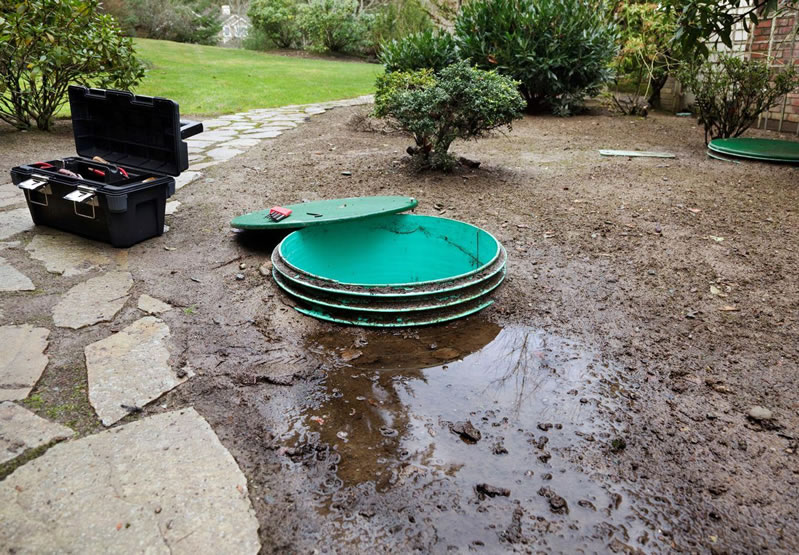Not many people love heavy rain, as it can wreak havoc on infrastructure, water supply, transportation, and more. Heavy rain isn’t good for septic systems either. It’s one of the main causes of septic system failure.

In this article, Mr. Rooter Plumbing explains how heavy rain affects septic systems and what you can do to protect your septic system from damage. If you’re looking for a professional plumber providing reliable plumbing services, get in touch with Mr. Rooter Plumbing.
A drain field consists of a series of perforated pipes buried in trenches filled with a porous material and covered by soil. There are certain conditions that must be met to ensure the proper functioning of a drain field and prevent problems. The drain field can only handle a limited amount of wastewater at a time. Heavy rains can saturate the soil around the drain field and hinder its ability to absorb wastewater.
When the drain field cannot handle the increased water volume, it can lead to sewage backup and foul odors permeating into your home. If your drain field is saturated due to heavy rain, try reducing your water usage and call a professional plumbing service specializing in septic repairs. The experts will assess the condition of the absorption area and offer reliable solutions. If this problem has become a common occurrence, you may need to replace the drain field altogether.
The recommended distance between a drain field and a water source should be at least 100 feet. However, a flooded drain field can release untreated wastewater into nearby water bodies and groundwater. If you have a well in your home, standing water on the drain field can find its way into the well and contaminate the water supply. It’s a good idea to have a trusted plumbing repair service test your well water after heavy rain. The experienced plumbers at Mr. Rooter Plumbing have the skills and experience to assess your drain field and restore proper functioning.
As we’ve already highlighted, a saturated drain field will be unable to handle increased water flow. This will lead to a situation where the septic tank fills faster than usual because wastewater cannot be effectively absorbed by the soil. An overloaded septic tank can cause sewage to flow into your home through drains, toilets, and other plumbing fixtures.
Rainwater can also find its way into a septic tank through cracks. If your septic tank is cracked or damaged, call a local plumbing repair service for septic tank repair before the problem worsens. A cracked septic tank is not only an environmental hazard, but it can also pose a serious health risk to you and your family. Contaminated wastewater can seep into the ground and contaminate drinking water sources, leading to the spread of harmful bacteria and viruses. Call septic system experts if you notice any signs of a damaged septic tank.
Is your drain field saturated? Is wastewater backing up into your drains? Have you noticed signs of a damaged septic tank? Reach out to Mr. Rooter Plumbing for help. We are a professional plumbing company providing a comprehensive range of septic services, including septic tank pumping, drain field repair, septic tank repair, and more.
Let's be frank: Everything costs more than it did two years ago. Your grocery bill is higher, gas prices bounce around like a yo-yo, and if your water heater just…
If you live in Florida, then you know how fast a sunny afternoon can turn into a heavy downpour. In a low-lying state where the water table sits high and…
Your plumber just delivered the news: your home needs repiping. Those galvanized steel pipes that have served faithfully for 60 years are finally giving up. Or…
If you notice water pooling on your floor, you may feel frustrated… but you’re also fortunate. Visible leaks announce themselves early. Hidden leaks do not. In fact, many of the…